France's far right taps into voters' disquiet
- Published
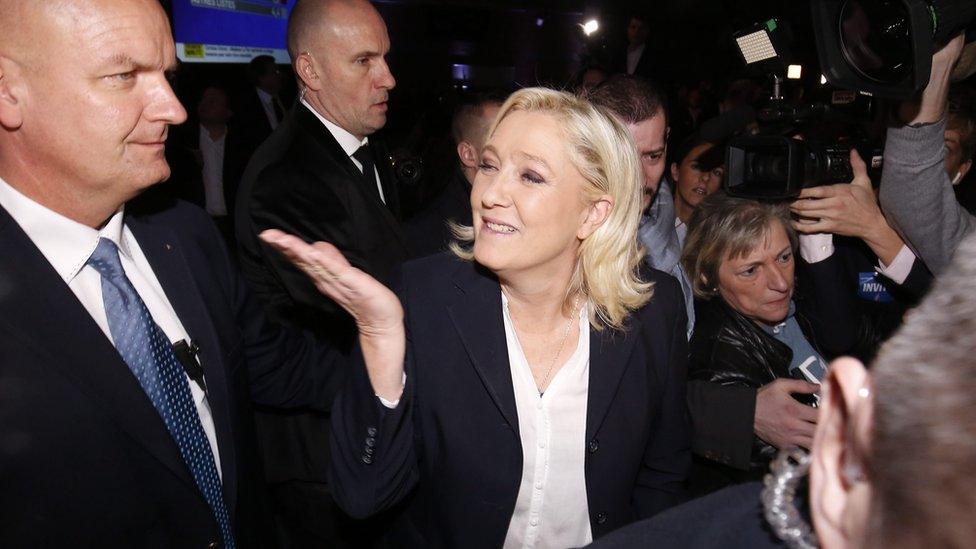
Marine Le Pen's success in regional elections may not translate into power
The message from the first round of France's regional elections is simple and unequivocal - once again the far right has come out on top.
For the third time in a year-and-a-half, Marine Le Pen can legitimately say that her Front National (FN) is the country's most popular party.
It happened with the European elections, then with the departmentals - and now after round one of the regionals, the FN has once again outperformed both its rivals.
It is an astonishing performance for a party that until very recently was regarded as being beyond the pale.
The Paris attacks will have played a part in this.
The attacks propelled to the top of the national agenda issues of immigration and security that have always been the far right's strong card.
All the FN had to say was "we told you so" and it was hard for either the Socialists or Nicolas Sarkozy's Republicans to answer back.

FN supporters celebrated as the scale of their success became clear
But it would be wrong to ascribe Ms Le Pen's triumph solely to fears of terrorism.
Her party has been on a steady upward slope for four years.
The problems that worry voters are as much economic and social as they are security-related.
Barely reported in the heat of the attacks were the latest unemployment figures. After a brief respite, they have once again started to grow.
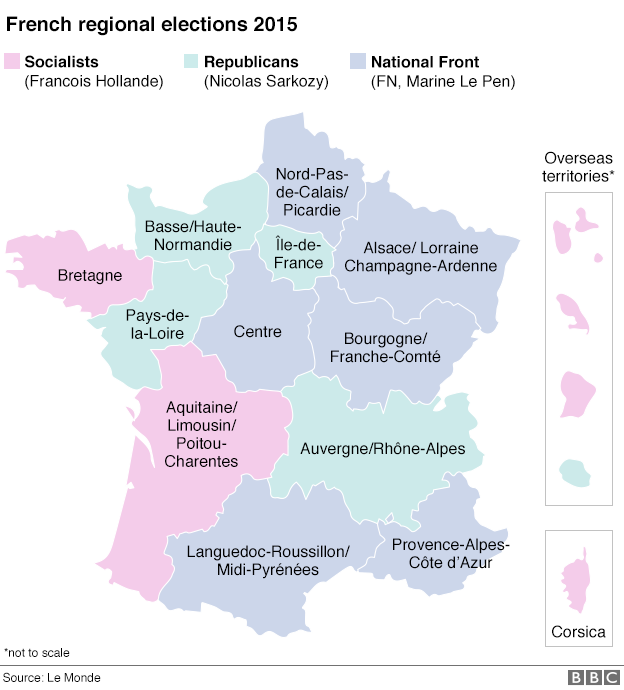
For more and more voters, the recipes offered by the two main parties are indistinguishable. There is a surly anti-establishment mood in the land, of which the National Front- a quintessential anti-establishment party - is taking full advantage.
Of course triumph for the FN will not necessarily translate into power.
The regional elections (like most French elections) are in two rounds. Next Sunday, voters may rally around the two main parties.
But in two regions - the north and on the Cote d'Azur - the National Front has smashed the opposition. In a third - Alsace - its chances are very strong. Others are not beyond reach.
The two main parties can take action to keep the FN out. The third-placed party in a region - either the Socialists or the Republicans - can step down and urge its voters to vote to stop the FN.
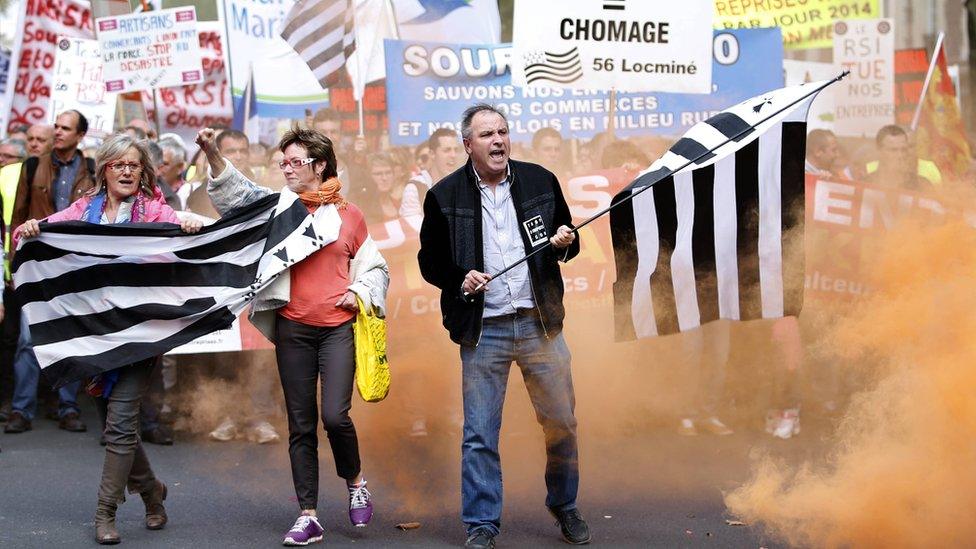
The FN has courted anti-establishment feeling across France
This has happened now in both the north and on the Cote d'Azur, where the third-placed Socialists have withdrawn their lists. This will make next Sunday's second round in these regions tighter - though the FN remains favourite.
But in Alsace, the Socialist is refusing to step down and elsewhere, Nicolas Sarkozy's Republicans are refusing to withdraw their third-placed lists. In most regions it will be a three-horse second round, splitting the anti-FN vote.
It is only by a twist of the electoral rules that this pattern cannot be repeated in the one election in France that really matters: the race for the presidency.
There, only two candidates qualify for the run-off. It is never a three-way fight.
So even if Marine Le Pen gets through to round two of the presidential election in May 2017, it is unlikely she would win. A majority would always combine to vote for the other candidate.
How relieved her rivals must be.
- Published5 December 2015
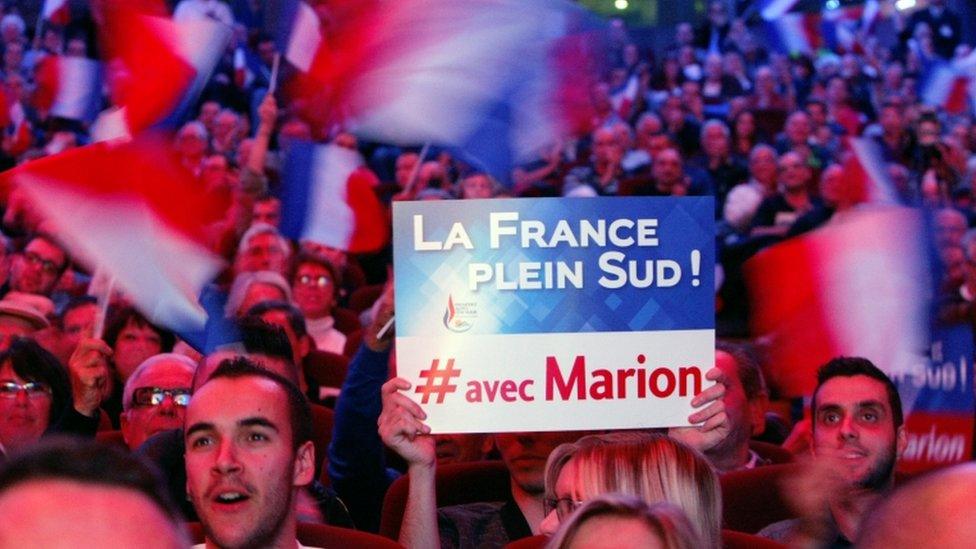
- Published4 December 2015
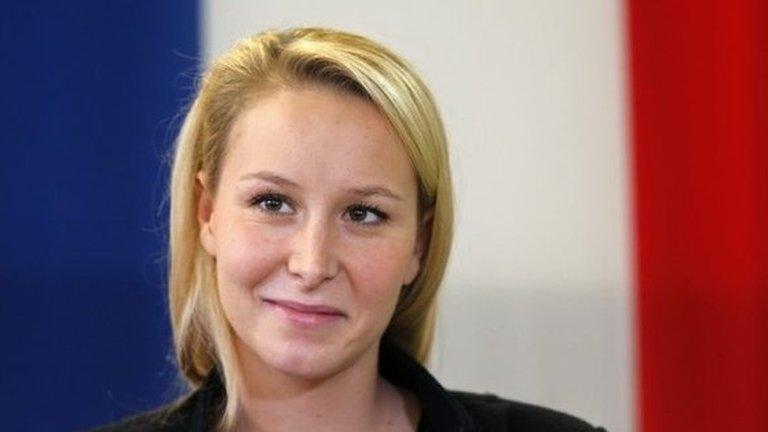
- Published7 December 2015

- Published5 December 2015
